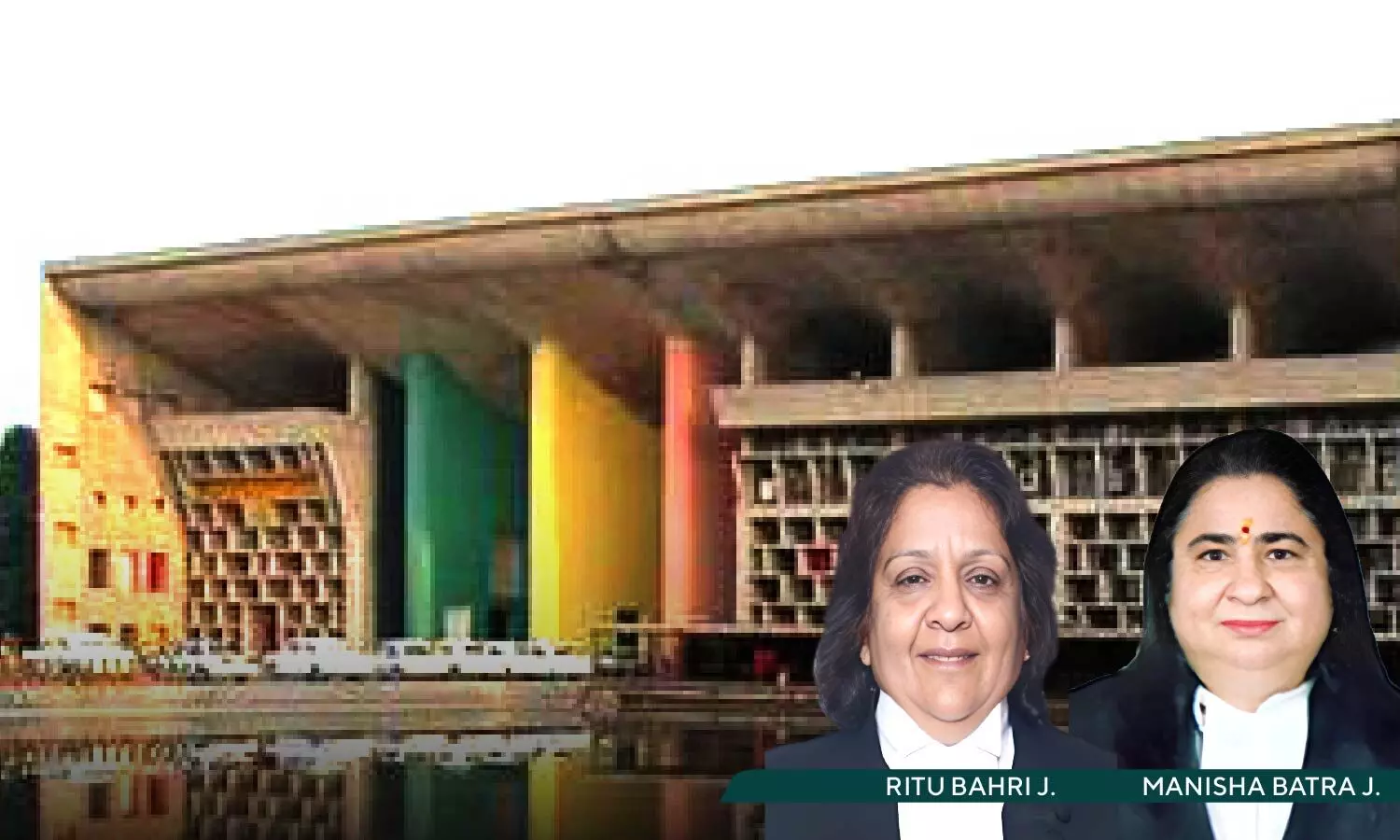
Department Has No Right To Retain Funds Without Initiating Proceedings U/s. 74(1) Of CGST Act: Punjab & Haryana High Court
 |
|While ruling in favor of M/s. Parsvnath Traders (petitioners), the Punjab & Haryana High Court ordered the refund of Rs. 50.70 lakh that was collected from the company during a search conducted by the Department of Central Goods and Services Taxation.
Additionally, the High Court also held the petitioners entitled to receive interest at a rate of 6% per annum from the date of deposit until the refund amount was released to them.
The High Court determined that the amount in question was not voluntarily deposited by the petitioners and that the Department had no right to retain the funds without initiating proceedings under Section 74(1) of the Goods and Services Tax Act, 2017 (CGST Act).
The Division Bench of Justice Ritu Bahri and Justice Manisha Batra observed that “The ‘self-ascertainment’ which is contemplated under Section 74(5) of the Act, 2017 is in the nature of ‘self-assessment’ and amounts to a determination by it which is unconditional and not as in the present case when shortly after depositing the amount Rs.50.70 lacs, the petitioner approached the revenue for refund of the same. Such recovery is not permissible”.
"It is a well-established principle that collecting tax from an assessee before the final determination of their liability was impermissible," added the Bench.
Advocate Deepak Gupta appeared for the Petitioner, whereas Advocate Anshuman Chopra appeared for the Respondents.
The brief facts of the case were that the petitioners were involved in the trading of chemicals. It had purchased goods from a regular supplier, M/s Royal Sales Corporation, along with invoices, E Way Bills, and other documents, on which the petitioner paid GST and claimed Input Tax Credit (ITC) for substantial amounts. Subsequently, on February 5, 2021, officials from the Department of Central Goods and Services Taxation conducted a search at the petitioners’ business premises and alleged that the petitioners had obtained bogus invoices from M/s Royal and fraudulently availed ITC.
The petitioners were coerced into depositing Rs. 20 lakhs on the same day and an additional amount of Rs. 30,70,216 on a later date. Despite the petitioners’ requests for evidence and information, the Department did not provide the requested documentation. The petitioners also sought a refund of the deposited amount, which was denied by the Department. The petitioners contended that the amount had been collected without following due process, such as issuing a show cause notice or an adjudication order, and without adhering to the prescribed legal procedure.
After considering the submission, the Bench found it intriguing that the petition, which had been ongoing since 2021, had not seen the issuance of a show cause notice against the petitioners in line with Section 74(1) of the Act.
The Bench refused to accept the argument of Revenue that the payments of Rs. 50.70 lakhs made by the petitioners on two separate occasions were instances of ‘self-ascertainment’ and thus triggered Section 74(5) of the Act, making them voluntary deposits.
There is no evidence demonstrating that the petitioners had indeed accepted this self-ascertainment or that the Revenue had evaluated it and determined whether the self-ascertainment by the petitioners was satisfactory or not, added the Bench while stating that the petitioners had consistently contested its liability to pay the tax.
The Bench further clarified that the deposit of the mentioned sum right after the search and investigation, when the petitioners’ proprietor was understandably stressed, cannot be categorized as ‘self-assessment’ or ‘self-ascertainment’, as this is distinctly different from the present case, where the petitioners promptly sought a refund of the amount of Rs. 50.70 lakhs shortly after depositing it.
Thus, the High Court concluded that since the petitioners had promptly sought a refund of the deposited amount of Rs.50.70 lakhs shortly after making the payment, such situation did not meet the criteria for ‘self-ascertainment’ as envisaged under Section 74(5) of the Act.
As a result, the High Court remarked that the deposited amount could not be considered a voluntary deposit, regardless of the fact that the payments were made using GST DRC-03 form.
Similar directions were also issued in the case of another petitioner, Mahavira Dyes & Chemicals, which had deposited an amount of Rs. 45.65 lakhs, and the Authorities are directed to refund this amount along with an interest rate of 6% per annum from the date of deposit until its realization.
Cause Title: M/s. Parsvnath Traders and Anr. v. Principal Commissioner, CGST and Anr. [Neutral Citation: 2023: PHHC: 101688-DB]
Click here to read/download the Order